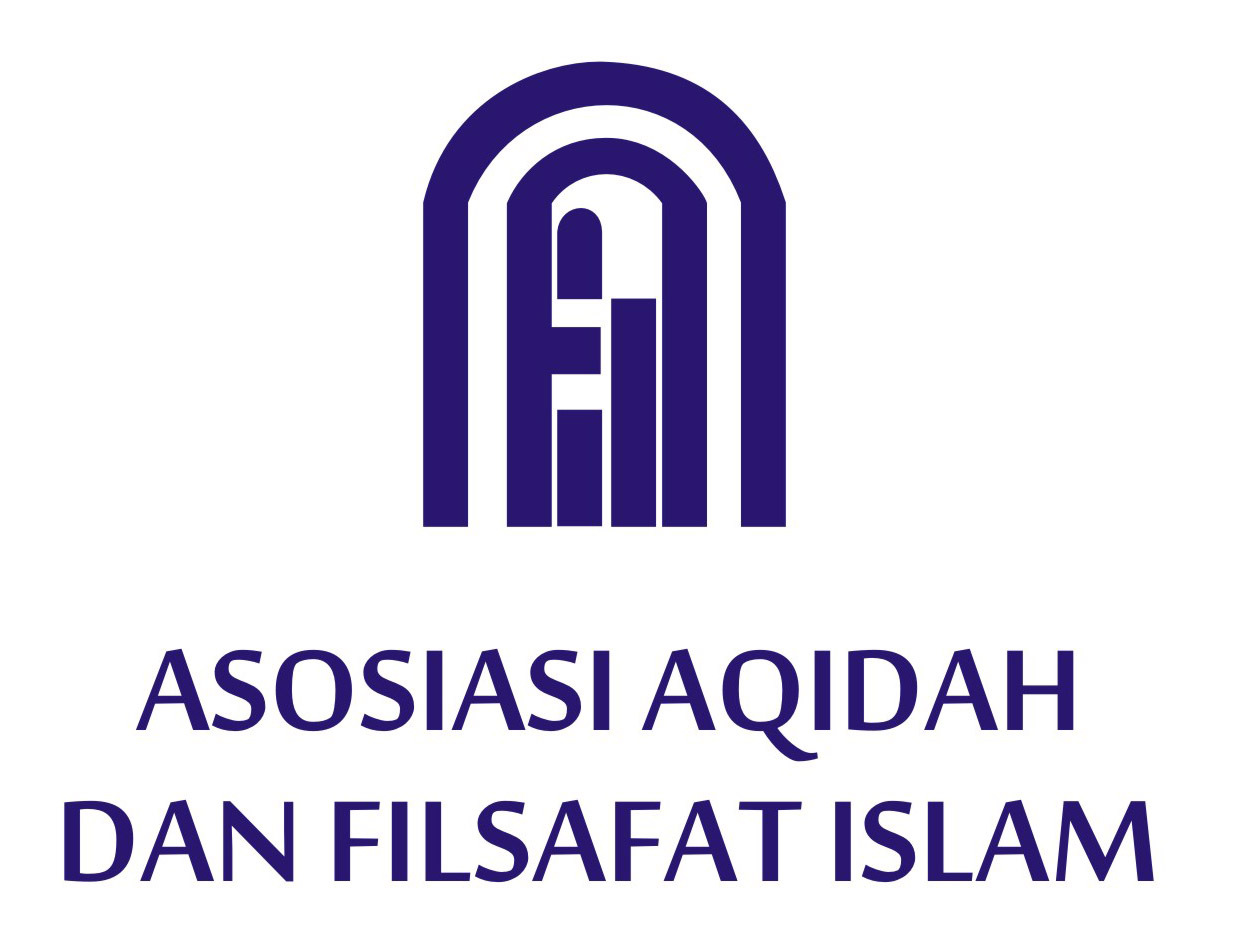Islamic Cosmology in Seyyed Hossein Nasr, Zaghloul al-Najjar, and Nidhal Guessoum’s Perspective
Abstract
The development of modern science not only provides an influence in terms of the development of science and technology scientifically but also gets a response from academicians who tried to integrate religion and science. Specifically in this study, the focus of the discourse is directed at the field of cosmology. When interpreted by Islamic thinkers such as Seyyed Hossein Nasr, Zaghloul Al-Najjar, and Nidhal Guessoum, cosmology has added the term to Islamic cosmology. The archeological and genealogical theories of Michel Foucault used in this study attempt to explore further the course of Islamic cosmological discourse developed by the three figures. Archeological and genealogical theories seek the genealogical thinking of those three figures. So, we could find the pattern in every methodology they used and the people who influenced them. The research results show that Islamic cosmology discourse is one of the efforts to Islamize science that is unprecedented in the development of Islamic civilization.
Full Text:
PDFReferences
al-Muslih, Abdullah Ibn Abd al-Azis, “History and Guidelines: Scientific Miracles in the Qur’an and Sunnah”, accessed from https://islamhouse.com/en/category/729028/showall/showall/1
al-Najjar, Zaghloul, Pembuktian Sains dalam Sunnah, trans. A. Zidni Ilham Faylasufa, Jakarta: Amzah, 2007.
al-Safa, Ikhwan, Dispute between Man and the Animal, trans. J. Platts, London: W. H Allen, 1869.
Barbour, Ian G., Juru Bicara Tuhan: antara Sains dan Agama trans. E.R Muhammad, Bandung: Mizan, 2002.
Bhat, Ali Mohammad, “Philosophical Paradigm of Islamic Cosmology”, Academic Journal: Philosophical Papers and Reviews, Vol. 7 No. 2 (2016), 13-21.
Bigliardi, Stefano, Strange Case of Dr. Bucaille: Notes for a Re-Examination, Oxford: The Muslim World, 2012.
Bucaille, Maurice, The Qur’an and Modern Science, ed. A. A. A. B Philips, UAE: Islamic Information Center Dubai, 1995.
Butar-Butar, Arwin Juli Rakhmadi, Khazanah Astronomi Islam Abad Pertengahan, Purwokerto: UM Purwokerto Press, 2018.
Chittick, William C, Science of the Cosmos, Science of the Soul: The Pertinence of Islamic Cosmology in Modern World, Oxford: A Oneworld Book, 2007.
Dhanani, Alnoor, The Physical Theory of Kalam: Atoms, Space, and Void in Basrian Mu’tazili Cosmology, Leiden, New York, Koln: E.J Brill, 1994.
Fakhry, Majid, Al-Farabi: Founder of Islamic Neoplatonism: his life, works, and influence, Oxford: Oneworld, 2002.
Guessoum, Nidhal, “Islam, Science, Methodological Naturalism, Divine Action, and Miracles”, in Hasan, U and Osama, A. (Eds) Islam & Science: Muslim Response to Science’s Big Questions, Muslim World Scientific Initiative, 2016.
______, Nidhal, Islam dan Sains Modern: bagaimana mempertemukan Islam dan sains modern, terj. Maufur, Bandung: Mizan, 2014.
Heriyanto, Husein, Revolusi Saintifik Iran, Jakarta: UI Press, 2013.
Iqbal, Muzaffar, Science and Islam, London: Greenwood Press, 2007.
Janos, Damien, Method, Structure, and the Development in Al-Farabi’s Cosmology, Leiden, Boston: Brill, 2012.
Kamiar, M., Brilliant Biruni: A Life Story of Abu Rayhan Mohammad Ibn Ahmad, United States of America: Scarecrow Press, 2009.
Maimun, Ach, Seyyed Hossein Nasr: pergulatan sains dan spiritualitas menuju paradigma kosmologi alternatif, Yogyakarta: IRCiSoD, 2015.
Milha, Khalid Yahya Abu, Scientific Issues in the Holy Qur’an: the Meaning and Translation of Verses Relating to the Creation of the Universe, Doctoral Thesis: Durham University, 2003.
NASA: Wilkinson Microwave Anisotropy Probe, “Cosmology: The Study of the Universe”, accessed from https://map.gsfc.nasa.gov/ cosmology/cosmology.html
Nasr, Seyyed Hossein, An Introduction to Islamic Cosmological doctrines, Great Britain: Thames and Hudson, 1978.
______, Islamic Science: an illustrated study, England: World of Islam Festival Publishing Company Ltd, 1976.
______, Science and Civilization in Islam, Chicago: ABC International Group, 2001.
______, Three Muslim Sages: Avicenna – Suhrawardi – Ibn ‘Arabi, New York: Caravan Book, 1997.
Netton, Ian Richard, Muslim Neoplatonist: an Introduction to the Thought of the Brethren of Purity (Ikhwan Al-Safa), Edinburgh: Edinburgh University Press,1991.
Raof, Hussein Abdul, Theological Approaches to Qur’anic Exegesis: a practical comparative-contrastive analysis, London & New York: Routledge, 2012.
Siraj, Fuad Mahbub, “Kosmologi dalam Tinjauan Failasuf Islam”, Jurnal Ilmu Ushuluddin, Vol. 2 No. 2 (2014), 109-124.
Stenberg, Leif, The Islamization of Science: four Muslim positions developing an Islamic modernity, Swedia: Lund University, 1996.
Yahya, Harun, Signs from the Qur’an, trans, Julia Konmaz, New Delhi: Goodword Books, 2006.
DOI: http://dx.doi.org/10.24042/klm.v16i2.8688
Refbacks
- There are currently no refbacks.
Copyright (c) 2022 KALAM
License URL: https://creativecommons.org/licenses/by-sa/4.0
KALAM [ISSN: 0853-9510, e-ISSN: 2540-7759] published by Faculty of Ushuluddin and Religious Study, Universitas Islam Negeri Raden Intan Lampung in collaboration with Asosiasi Aqidah dan Filsafat Islam (Islamic Theology and Philosophy Association)
Office: Faculty of Ushuluddin and Religious Study, Universitas Islam Negeri Raden Intan Lampung. Letkol H. Endro Suratmin Street, Sukarame, Bandar Lampung, Lampung, Indonesia, Postal code 34513. Website: http://ejournal.radenintan.ac.id/index.php/kalam, Email: [email protected].
 This journal is licensed under a Creative Commons Attribution-ShareAlike 4.0 International License.
This journal is licensed under a Creative Commons Attribution-ShareAlike 4.0 International License.


